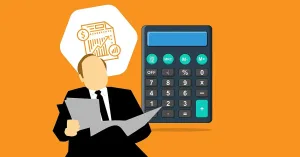Many companies have been forced to transition their employees to work from home situations due to coronavirus. This has created definite challenges. For the accounting profession, there are several challenges unique to the sector. In today's Rules of Thumb blog post from MoneyThumb, we are going to discuss how your accounting firm can make working from home easier on your employees, more productive for your company, and offer concrete solutions to issues your accounting firm is being forced to handle, and how to take on these issues with grace and efficiency.
In one of our previous blog posts, we offered advice to anyone transitioning to work from home situations. The advice in that post is very helpful but doesn't take into account the specific challenges of the accounting profession. A few of these challenges unique to accounting are; how to protect the delicate financial information of clients, safely transferring IT to your employees' home offices, and making sure deadlines continue to be met.
We found this great article at the Journal of Accountancy with sage advice from seasoned accounting professionals who are way ahead of the curve when it comes to working from home. The article discusses how not all accounting firms, or other businesses for that matter, are as prepared for all or large segments of their staff to work remotely. What can organizations do if quarantines or other travel restrictions preclude staff from coming into the office? What technologies will be needed? What policies will need to be in place? Can even organizations that have so far eschewed remote work cobble together a workable solution? The article addresses those questions and more.
The article points out how accounting firms who have already moved to the cloud are in a much better position to handle having employees work from home. "That’s because cloud applications and infrastructure provide much more scalability and accessibility than servers and software housed in the office," said Marc Staut, a shareholder and chief innovation and information officer at Boomer Consulting and former CIO for CohnReznick, one of the dozen or so largest U.S. accounting firms.
Fortunately for businesses, even those largely not in the cloud, several large technology vendors have provided a silver lining in the form of free access to products or certain features within products. For instance, Microsoft, Google, LogMeIn, Cisco, and Zoom are all offering free licenses during the COVID-19 outbreak to their meeting, collaboration, and remote work tools. “This is a great opportunity for firms that haven’t planned for a full-scale remote working scenario,” Staut said.
With security being one of the major issues accountants deal with, accounting firms and finance departments often have applications, data, or computing resources that employees must access directly. “Security is critical no matter the systems used,” said Lisa Traina, CPA/CITP, CGMA, a partner with cybersecurity firm CapinTech, a CapinCrouse company. As an example, Traina said that accountants should not be working at home on computers with outdated anti-virus software, especially if others in the household use the computer.
“So, any system used must have security measures in place, including things like current operating systems, updated software, virus and malware protection, encryption, login restrictions, IP address restrictions, and employee-acknowledged acceptable usage policies,” Traina said. “The list is long. Employers should also have multifactor authentication in place for all key systems, including email," she said.
All of this advice is for naught if accountants can’t access stable and secure high-speed internet access. Traina recommends that accountants avoid using public Wi-Fi networks, such as in coffee shops or some public areas, and should also make sure that the security on their home Wi-Fi connections is set up.
In a pinch, accountants can use their cellphones as mobile “hotspots” through which their computers can access the internet securely. Search your phone’s settings menus to access its “hotspot” controls, which often provide instructions on how to use it to connect your laptop or another computing device to the internet. "The use of mobile hotspots can help accountants avoid public Wi-Fi and stay online if their home internet connection goes down," Traina said.
Another connection concern is capacity. Can a firm’s VPN and technology infrastructure handle a larger percentage of its workforce connecting remotely? “That’s a great question,” said Les Nettleton, director of information technology services for Metairie, La.-based accounting firm Bourgeois Bennett. “So, I think … you’ve got to set up some test procedures and make sure that your people are able to get connectivity into your office.”
One approach, which Nettleton said he is aware of a firm using during the current pandemic, is to have a certain percentage of staff working from home on a Saturday and see if they can work effectively without major slowdowns in computing performance. The firm can assess the results of that test and then do another assessment with everyone working remotely.
The article also discusses how the ultimate success with remote working arrangements is as much about cultivating the right culture as having the right technology. Liz Mason, CPA, the CEO, and shareholder for High Rock, the Arizona-based accounting firm that she founded, has this to say on that subject,
“Make sure you are setting expectations upfront with your team,” she said. “If you bill hourly, set billable hour goals. If it is project-based, set expectations of what project milestones need to be completed each week. Set up virtual team meetings or one-on-ones with anyone planning on working remotely. It helps keep projects moving as expected and avoid the last-minute delays to clients. I would say project management or a practice management application with milestones, deadlines, and assignments is a must for anyone planning to have remote workers.” In the end, employers may be surprised at what they learn when staff works remotely. “Embracing the remote work life might give some firms a taste of the potential where they would not want to go back,” Mason said.
The MoneyThumb team strongly suggests that if you are an accountant who is transitioning to work from home, you read that article in its entirety. We'd also like to share with you this free downloadable whitepaper from CPA Practice Advisor titled, Solve for Now While Preparing for the Future. Here is a description of what the whitepaper covers:
"In the midst of the 2020 tax season, CPAs were challenged with yet another mandatory regulation: stay home. And what was first classified as a short, temporary, relocation has now extended into... uncertainty. The truth is: no one knows when life will return to "normal." The situation has been further exasperated by firms making snap technology decisions going back to “old and familiar” manual ways of doing things, a practice that leads to data loss, unsecured internet connections, and more. But these are unprecedented times; how is a firm employee expected to manage their workload the same way they would in an office setting?" Download this free whitepaper by following this link.
These are definitely trying times for everyone, but we will make it through. Nothing is stronger than the human spirit and our indomitable will.





















Add comment